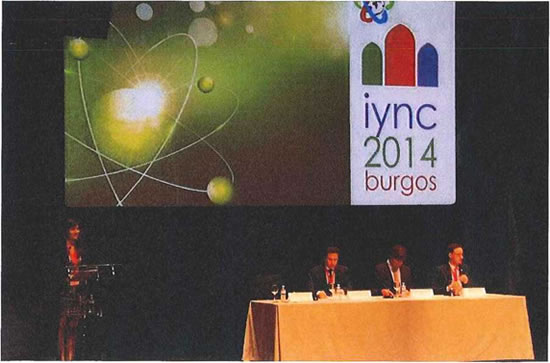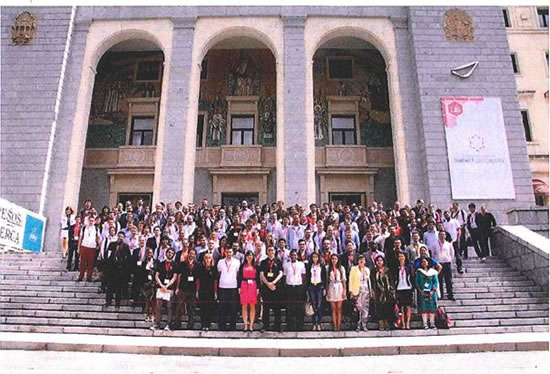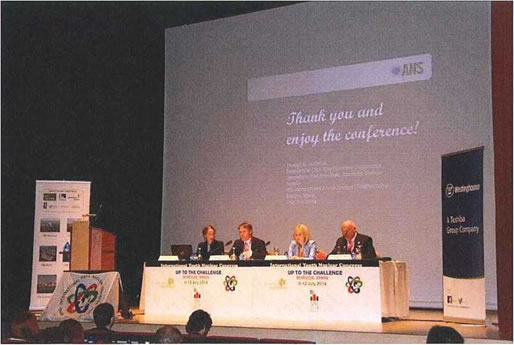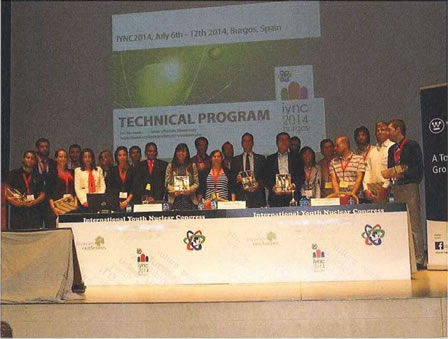

Spanish Nuclear Society (Third quarter 2014)
In July, the 8th International Young Nuclear Congress (IYNC 2014) took place in the city of Burgos, Spain. Jovenes Nucleares (JJNN), the Spanish Young Generation Network, was the host organization, and it benefited from the unconditional support of the Spanish Nuclear Society (SNE), our 'mother society'. They made the event possible, while at the same time showing the robust health of the Spanish nuclear sector.
IYNC conferences take place once every two years all over the world and since the first edition took place, in Slovakia 2000, it has visited all the world’s continents, except for Oceania.
For over two years JJNN had worked very hard in conjunction with the international team of organisers in order to bring this initiative to a successful conclusion. The JJNN team showed great organisation skills and team spirit.
There were two main targets that needed to be accomplished. Firstly, we wanted to encourage the exchange of knowledge between different generations and countries,

because sharing operational experiences results in an increase of safety at power plants. Secondly, it was important to strengthen the relationship between international network members, making it possible to establish stable links that will make communication easier in the future. In this regard, the local committee had striven to provide a unique atmosphere of ‘sociability,’ something that is easy to find in a country like Spain.
In short, the congress was a complete success, as most of the 380 attendees confirmed. All the objectives were accomplished.

The first achievement that must be highlighted is the level of attendance - not only the total number of attendees, but also the great variety of the delegates. A large number of people answered our call to participate, including almost 20% from Asian countries like China, Japan, India and South Korea. This shows clearly the strong commitment that these countries have made to nuclear energy. There were also representatives present from countries that do not have a nuclear programme, such as Kenya or Nigeria. This also highlights the level interest that these countries have in nuclear technology.
Another important achievement was the ambitious congress programme itself, which was finalised and executed by the technical team. It consisted of 11 technical sessions during which nearly 250 papers were presented. Nineteen workshops covering the entire spectrum of topics from fuel cycle to women in nuclear and the importance of communications were also organised. We would like to highlight two sessions in particular, one regarding Fukushima, and the other that featured a showing of the film Pandora’s Promise, which was followed by a debate with the film’s director.

The interest and acceptance of the local media was also remarkable. They monitored the congress every day and provided a summary. The event was covered by local TV, radio and both the print and electronic press. This shows clearly the positive attention that is being paid to nuclear technology.
This proof of the strength of the commitment shown by young nuclear professionals from all over the world made us feel very optimistic about the future of nuclear energy. Such a degree of enthusiasm will propel us to the highest possible level of excellence. They have demonstrated that they are, without any doubt, ‘up to the challenge’.

|

